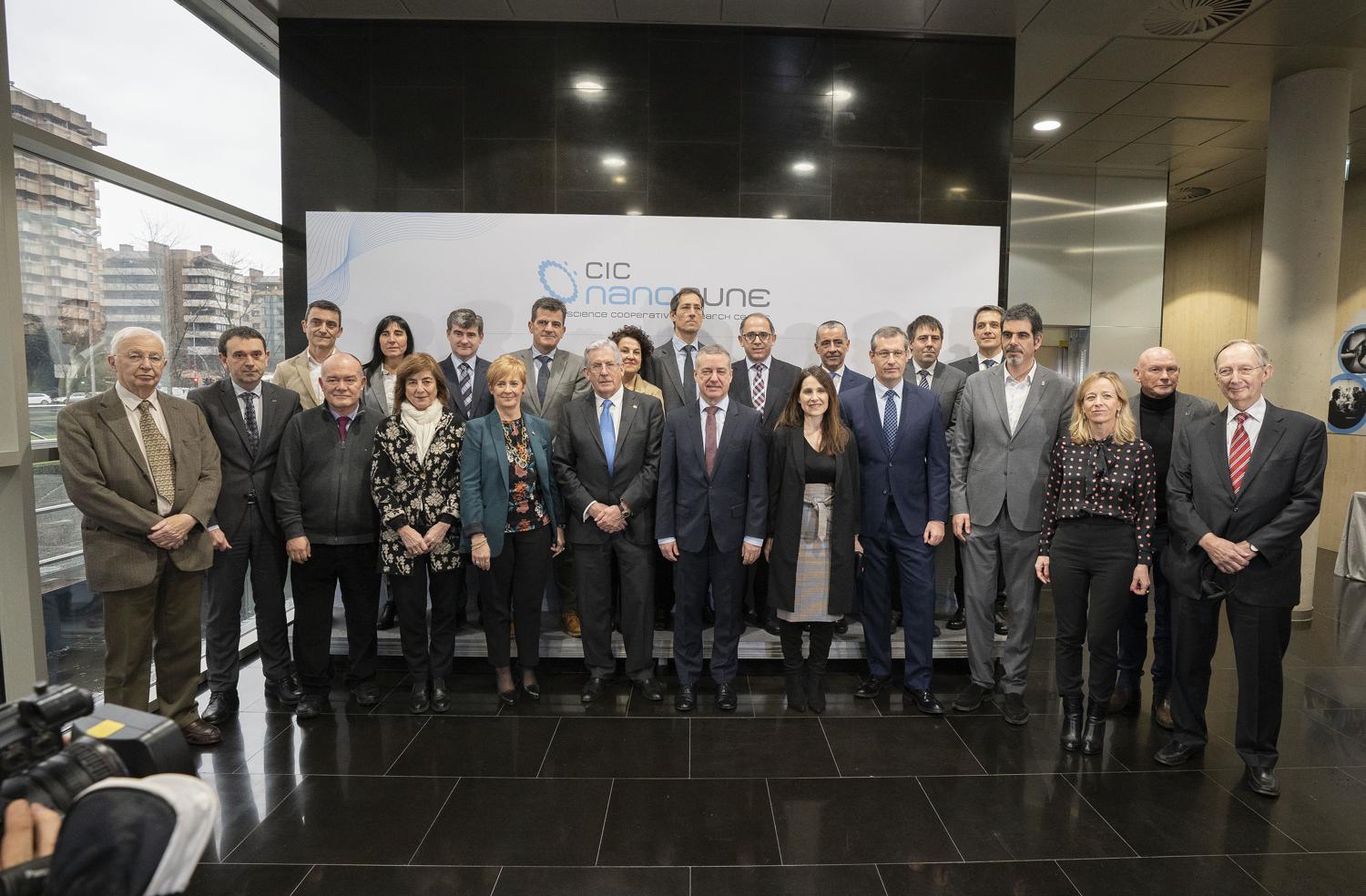CIC nanoGUNE: a decade of science, collaboration, training and transfer
Nanoscience and nanotechnology are already and are set to become the great architects of true transformations. The production of graphene, for example, which everyone regards as a material of the future owing to the numerous properties it is capable of bringing together, would have been impossible without the advances in nanotechnology and without the knowledge generated by research teams such as that of nanoGUNE. Research into nanoscience and nanotechnology calls for highly sophisticated architectural and engineering conditions that make it possible to tackle experiments that would be impossible at an ordinary facility. NanoGUNE built a state-of-the-art infrastructure for this purpose ten years ago.

The aim of nanoGUNE was to put the Basque Country at the international forefront of nanoscience and nanotechnology. Ten years have passed since then and “the commitment made by the Basque Government with the launching of a centre like ours has produced results”, said Jose María Pitarke, nanoGUNE’s CEO.
“We have been able to draw 12 research group leaders who enjoy great recognition in their respective fields and who right now are directing about 100 researchers from 25 countries all over the world,” said Pitarke. “This scientific work has been reflected in over 800 scientific articles published by prestigious journals, including Science and Nature,” he pointed out. The centre was born with the commitment to contribute towards the Basque Country’s business competitiveness and economic development and has already set up 5 technology-based companies (Graphenea, Simune Atomistics, Ctech-nano, Evolgene and Prospero Biosciences) which are currently competing internationally; 14 patents have been applied for and 9 are already being exploited. Beyond this commitment of a business and industrial nature, the centre has also undertaken to generate talent thanks to 39 PhD theses completed since it began, to which have to be added a further 32 that are in the process of being written up. Pitarke stressed that “if we want to be pioneers, if we want to be capable of discovering new worlds, if we want to be the first to exploit niches that we are being offered by world advances in science, we have to go on exploring these routes the destination of which remains unknown and even unimaginable”.
NanoGUNE’s chairman Pedro Miguel Etxenike highlighted the fact that “the first Basque Government opened up the path towards a deep, highly significant change in the world of scientific research in our country. And we have been fortunate that successive governments have got it right in developing and pursuing that road opened by that first Government. Governments that at defining moments have driven important qualitative leaps in the development of our system of science and technology. There is no doubt that one of these moments was the setting up of the CICs [Co-operative Research Centres]”. Quoting [the Basque artist] Oteiza, Etxenike said whoever innovates, whoever creates something new, does what Basque oarsmen do, moving forwards, but facing backwards as they row, looking back towards the past, so that they can re-invent their key aspects. “But on the boat the skipper always looks forward, towards the future, towards the destination that has to be reached. This is the reference that nanoGUNE must have: looking to the future while learning from the previously trodden path,” concluded nanoGUNE’S chairman.
The Lehendakari (President of the Basque Government) Iñigo Urkullu participated in the celebration ceremony and stressed that “ten years are nothing in the development of science; however, the achievements of nanoGUNE in a decade are incredible. NanoGUNE shows that Euskadi looks to the future and that we all row together. We believe in collaboration and we will continue to do so, since the commitment to nano has a promising future in Euskadi”.
Also participating in the ceremony were the Head of the Chartered Provincial Council of Gipuzkoa Markel Olano, the Speaker of the Basque Parliament Bakartxo Tejería, the mayor of Donostia-San Sebastián Eneko Goia, the Speaker of the General Assemblies of Gipuzkoa Eider Mendoza, the Vice-Chancellor of the UPV/EHU-University of the Basque Country Nekane Balluerka, the Basque Government Minister for Economic Development and Competitiveness Arantxa Tapia, and the Basque Government Minister of Education Cristina Uriarte, among other representatives of institutions and top positions in companies.
Scientific workshop and public lectures
The afternoon programme of events will start with a scientific workshop in which the speakers John Pendry (Imperial College London), Frank Koppens (ICFO, Spain), Anna Fortcuberta i Morral (EPFL, Switzerland) and Jean-Marie Lehn (University of Strasbourg, France) will be discussing at length subjects such as plasmonic surfaces, nanophotonics, semiconductor nanowires, and supramolecular chemistry. Then there were public lectures that over 150 people had signed up for; they were given by the Nobel Laureate in Chemistry Jean-Marie Lehn and the Professor of Inorganic Chemistry María Vallet Regí, internationally recognised for their contributions to biotechnology and medicine; they gave the talks “Steps towards complex matter: Chemistry!” and “Nanotechnology and its applications: Possible solutions for cancer, osteoporosis and bone infection”, respectively.
The celebrations to mark the 10th anniversary will end with various guided visits on February 1 and 6 for any audience to gain a deeper insight of the internal workings of nanoGUNE.
